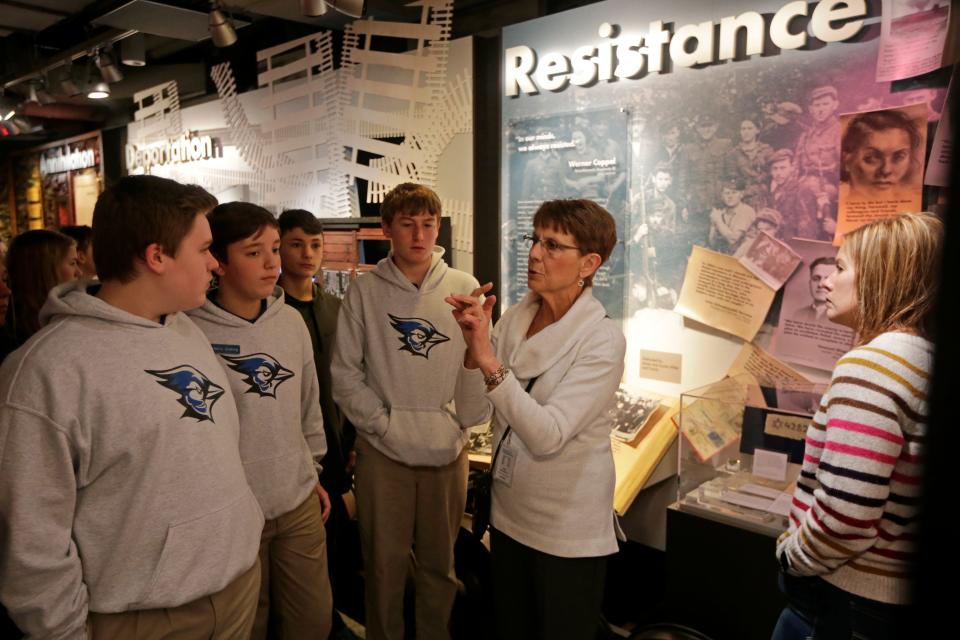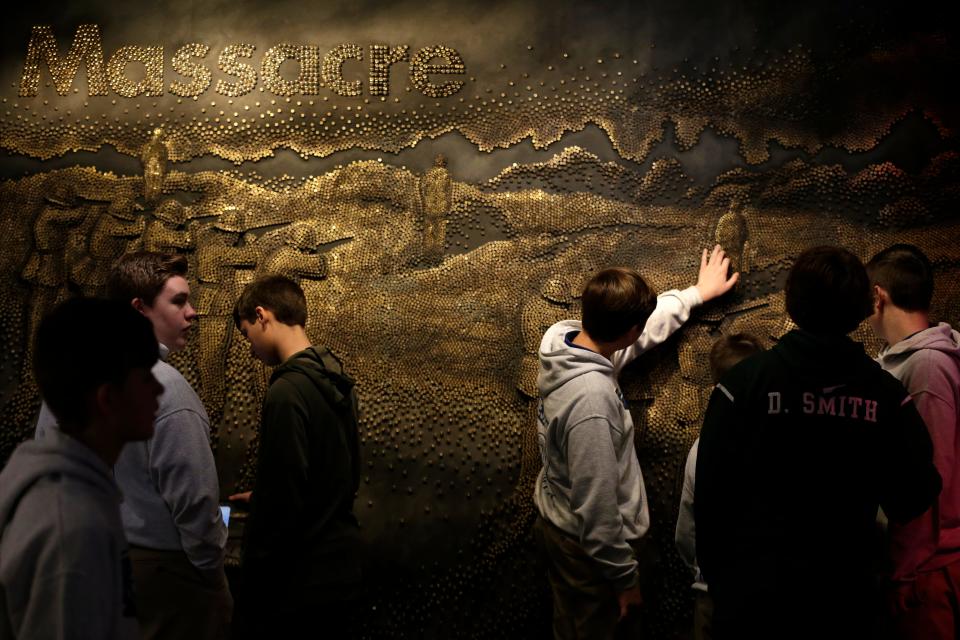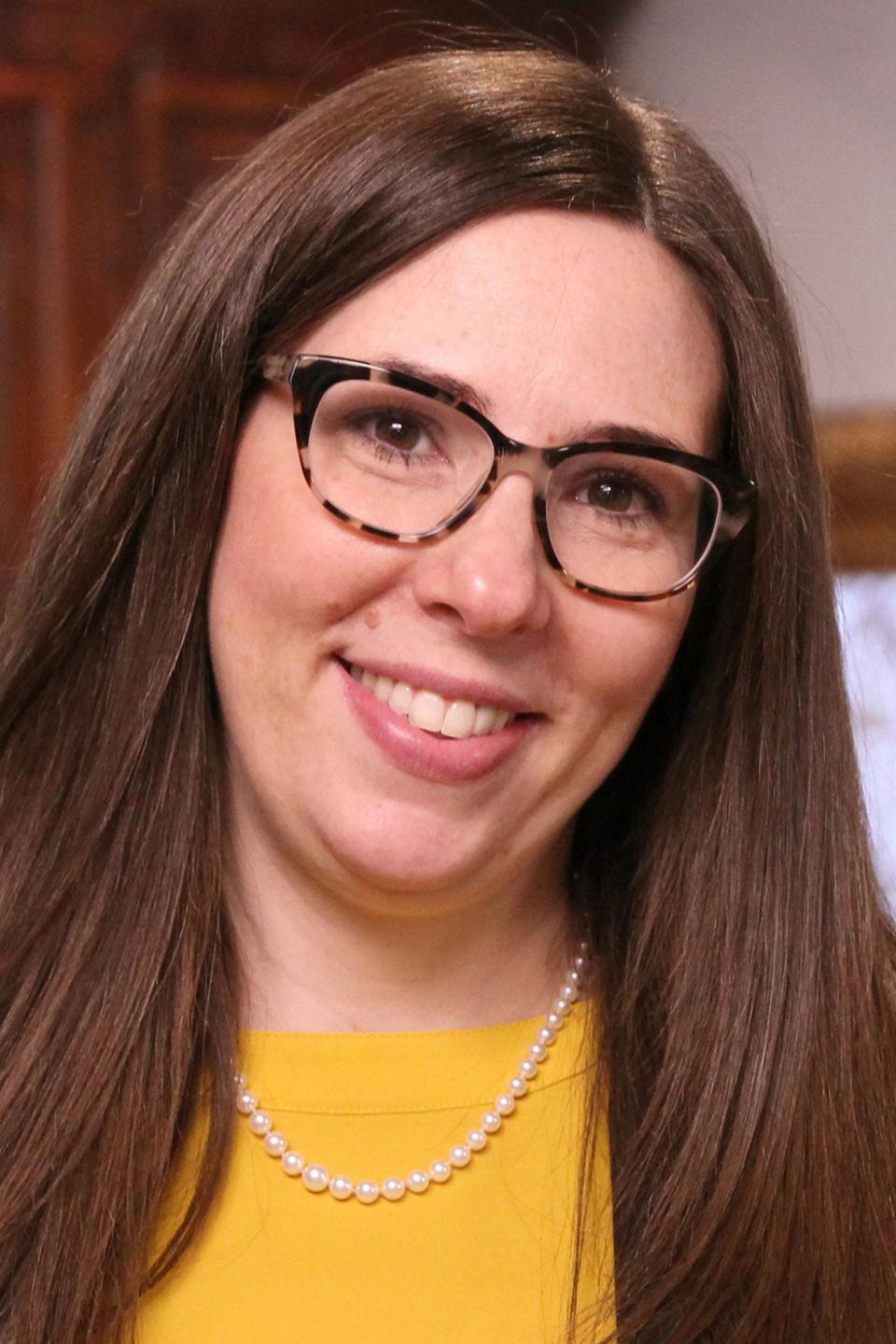Opinion: Cincinnati lifts ordinary people to solve big problems
When out-of-town visitors come to explore the museums at historic Union Terminal, I'll often hear them marvel at what they've discovered in what they thought was fly-over country.
Cincinnati has world-class sports teams, an arts and culture scene that can compete with any major metropolitan area, and restaurants that even the most sophisticated epicure can enjoy. But as I round out my 18-year tenure as CEO of the Nancy & David Wolf Holocaust & Humanity Center, I’d have to say the Queen City’s crown jewel is its unique ethos: a place where every-day people can build the community they want to live in.
This city is a place deeply connected to its own history, and our obligation as citizens to preserve it, learn from it, and act on its lessons. My story − and the story of the Holocaust and Humanity Center − are both only possible here in a town that lifts ordinary people to solve big problems.
I arrived here from Youngstown in 2000 as a wide-eyed UC student with a passion for justice, driven by my own family’s story of surviving the Holocaust. As a first-year student, witnessing the civil unrest that erupted in the wake of the shooting of Timothy Thomas added new urgency and proximity and propelled me into local community work. Upon graduating, I joined Public Allies, an Americorps program, and found a community of leaders doing incredible and innovative work.

Through that program, I became engaged with the Holocaust & Humanity Center. Founded by Holocaust survivors and their descendants on the campus of Hebrew Union College, our mission was and is about using the lessons of the Holocaust to inspire action today. From the beginning, HHC has benefitted from diverse local partnerships and leaders who championed its mission. From Xavier University and the University of Cincinnati to United Way, the Cincinnati Ballet, and The Cincinnati Museum Center, HHC has enjoyed partnerships with more than 100 local organizations.
This is not the experience of my colleagues in other cities. This level of collaboration and shared impact is unique to Cincinnati.
Only a few years into my tenure, HHC’s founding director resigned and HUC faced financial difficulties. But the HHC board rallied, supported by a community that believed in the impact we could have, and we reimagined ourselves as an independent organization.
At the time, I was the 24-year-old program manager of the organization. Only in Cincinnati could a board chair see the next executive director in a young, passionate idealist. We are a city that values hard work and hustle, and this community took a chance on a 20-something with a desire to make a difference. Even more remarkable, they surrounded me with the support I needed to do the job.
With steadfast support from every corner, we were able to help HHC navigate to its next chapter − creating new exhibits, gaining partners, and growing programming. But that wasn't enough; there was more to do, and this community embraced a bigger, bolder vision.

While historic buildings are being demolished across the country, only in Cincinnati could HHC find its permanent home inside Cincinnati Museum Center at the newly renovated Union Terminal − the same place where local Holocaust survivors arrived as refugees from a war-torn Europe and took their first steps at rebuilding their lives. In Cincinnati, we take pride in preserving our history, and we rise to the challenge of what it demands of us in the present.
Today, HHC is fortunate to be a part of the civic center of our community and sadly its work is more relevant than ever. As HHC enters a new chapter of growth, with bold plans for another expansion and an ambitious commitment to make Cincinnati a community of upstanders, we know it's possible, because that's who we are. While I'm stepping down from my position as CEO, I'll never step away from our mission in this place I'm so proud to call home.
Sarah L. Weiss is the outgoing chief executive officer of the Nancy & David Wolf Holocaust & Humanity Center.

This article originally appeared on Cincinnati Enquirer: Opinion: Cincinnati lifts ordinary people to solve big problems

